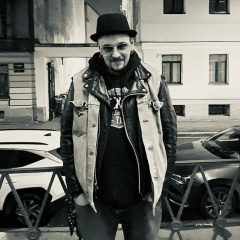"Орхан очень любил «черную» Африку и бывал там неоднократно. Он был в Сомали, куда он приехал делать репортаж о сомалийских пиратах и месяц просидел в местной тюрьме, а потом описал свое пребывание там. Какое-то время жил в Кении, а еще, будучи молодым человеком, работал в Алжире после окончания геолого-разведывательного института. Поэтому Африка была для Орхана совсем не чужим пространством, наверное, поэтому он и проехал с ребятами в эту командировку. Хотя я и многие друзья его отговаривали: «Ну зачем ты туда едешь, это же периферия...»
После тяжелого ранения в Ливии он был несколько выброшен из журналистской работы и очень хотел вернуться в профессию: ему нужны были большие сюжеты и репортажи, поэтому он как настоящий журналист искал супер-темы.
В прошлом году он поехал в Мьянму и сделал удивительный цикл видеорепортажей из лагерей Рохинджа, где никто до него не был. Он пробрался туда и описал жизнь этих людей.
Он оказался в самом эпицентре Ошской резни в Киргизии и делал оттуда репортажи во время работы в Русском Newsweek.
Он писал о восстании в Андижане — тогда он пробрался через границу по какой-то трубе и был единственным журналистом, который там оказался.
Это были одни из многих его тем про опасность, боль и смерть.
Он всегда оказывался в эпицентре самых страшных событий, потому что у него не было страха. У него было острое чутье, журналистское чутье. И он и умер как выдающийся и храбрейший журналист.
В армии Орхан служил в ВДВ в Закавказье и вот, накануне 2 августа — дня ВДВ, был убит. Все в его жизни было литературным сюжетом и литературным произведением. И жизнь эта, к сожалению, закончилась."
После тяжелого ранения в Ливии он был несколько выброшен из журналистской работы и очень хотел вернуться в профессию: ему нужны были большие сюжеты и репортажи, поэтому он как настоящий журналист искал супер-темы.
В прошлом году он поехал в Мьянму и сделал удивительный цикл видеорепортажей из лагерей Рохинджа, где никто до него не был. Он пробрался туда и описал жизнь этих людей.
Он оказался в самом эпицентре Ошской резни в Киргизии и делал оттуда репортажи во время работы в Русском Newsweek.
Он писал о восстании в Андижане — тогда он пробрался через границу по какой-то трубе и был единственным журналистом, который там оказался.
Это были одни из многих его тем про опасность, боль и смерть.
Он всегда оказывался в эпицентре самых страшных событий, потому что у него не было страха. У него было острое чутье, журналистское чутье. И он и умер как выдающийся и храбрейший журналист.
В армии Орхан служил в ВДВ в Закавказье и вот, накануне 2 августа — дня ВДВ, был убит. Все в его жизни было литературным сюжетом и литературным произведением. И жизнь эта, к сожалению, закончилась."
“Orhan loved 'black' Africa very much and visited there several times. He was in Somalia, where he came to report on Somali pirates and spent a month in a local prison, and then described his stay there. For some time he lived in Kenya, and also As a young man, he worked in Algeria after graduating from the Geological Prospecting Institute. Therefore, Africa was not at all alien space for Orhan, probably that is why he went with the guys on this business trip. Although I and many friends dissuaded him: “Well, why are you going there you go, it's the periphery ... "
After being seriously injured in Libya, he was somewhat thrown out of journalistic work and really wanted to return to the profession: he needed big stories and reports, so he, like a real journalist, was looking for super-topics.
He traveled to Myanmar last year and did an amazing cycle of video footage from the Rohingya camps, where no one had been before. He made his way there and described the lives of these people.
He found himself at the very epicenter of the Osh massacre in Kyrgyzstan and reported from there while working for Russian Newsweek.
He wrote about the uprising in Andijan - then he made his way across the border through a pipe and was the only journalist who ended up there.
These were one of his many themes about danger, pain and death.
He always found himself at the epicenter of the most terrible events, because he had no fear. He had a keen flair, a journalistic flair. And he died as an outstanding and brave journalist.
In the army, Orkhan served in the Airborne Forces in the Transcaucasus, and now, on the eve of August 2, the day of the Airborne Forces, he was killed. Everything in his life was a literary plot and a literary work. And this life, unfortunately, is over. "
After being seriously injured in Libya, he was somewhat thrown out of journalistic work and really wanted to return to the profession: he needed big stories and reports, so he, like a real journalist, was looking for super-topics.
He traveled to Myanmar last year and did an amazing cycle of video footage from the Rohingya camps, where no one had been before. He made his way there and described the lives of these people.
He found himself at the very epicenter of the Osh massacre in Kyrgyzstan and reported from there while working for Russian Newsweek.
He wrote about the uprising in Andijan - then he made his way across the border through a pipe and was the only journalist who ended up there.
These were one of his many themes about danger, pain and death.
He always found himself at the epicenter of the most terrible events, because he had no fear. He had a keen flair, a journalistic flair. And he died as an outstanding and brave journalist.
In the army, Orkhan served in the Airborne Forces in the Transcaucasus, and now, on the eve of August 2, the day of the Airborne Forces, he was killed. Everything in his life was a literary plot and a literary work. And this life, unfortunately, is over. "
У записи 5 лайков,
5 репостов,
1045 просмотров.
5 репостов,
1045 просмотров.
Эту запись оставил(а) на своей стене Максим Козырев


























